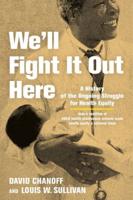Publisher's Synopsis
During the Civil War, the utility and widespread availability of opium and morphine made opiates essential to wartime medicine. After the war ended, thousands of ailing soldiers became addicted, or "enslaved," as nineteenth-century Americans phrased it. Veterans, their families, and communities struggled to cope with addiction's health and social consequences. Medical and government authorities compounded veterans' suffering and imbued the epidemic with cultural meaning by branding addiction as a matter of moral weakness, unmanliness, or mental infirmity. Framing addiction as "opium slavery" limited the efficacy of care and left many veterans to suffer needlessly for decades after the war ended.
Drawing from veterans' firsthand accounts as well as mental asylum and hospital records, government and medical reports, newspaper coverage of addiction, and advertisements, Jonathan S. Jones unearths the poorly understood stories of opiate-addicted Civil War veterans in unflinching detail, illuminating the war's traumatic legacies. In doing so, Jones provides critical historical context for the modern opioid crisis, which bears tragic resemblance to that of the post-Civil War era.









